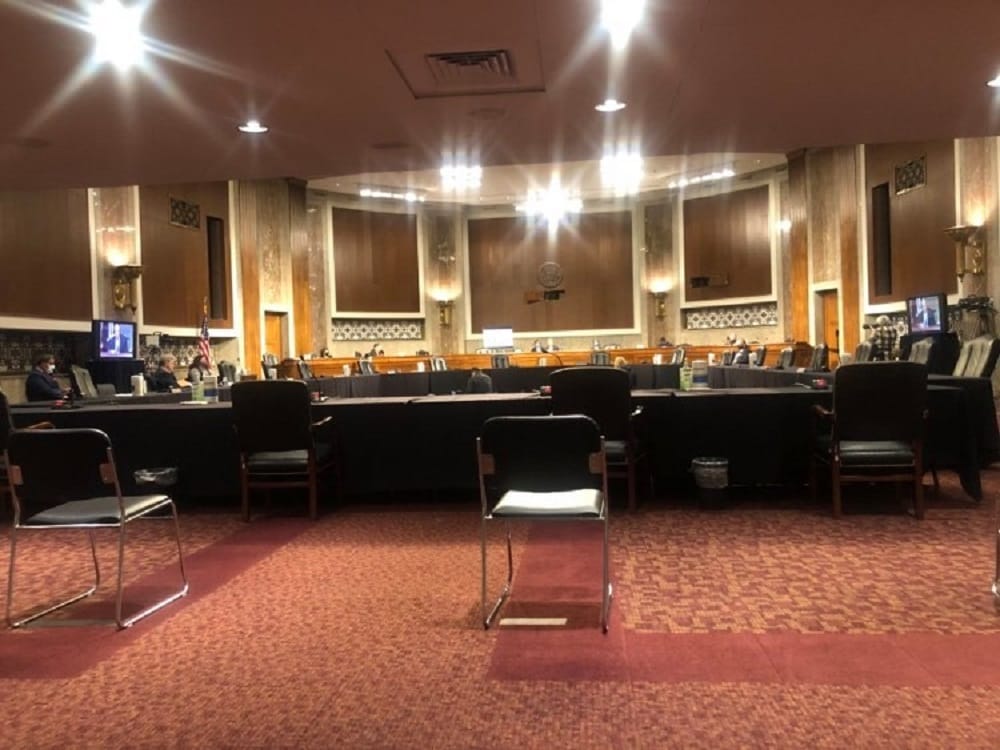GOP Senators Call Platforms ‘Publishers’ and Want to Strip Section 230 Protections, and Dems Aren’t Fans Either
November 17, 2020 – In the second major showdown between the CEOs of Twitter and Facebook and senators within less than three weeks, Republican Sens. Ted Cruz of Texas, Marsha Blackburn of Tennessee, and John Kennedy of Louisiana said the social media platforms needed to be treated as common publish
Liana Sowa

November 17, 2020 – In the second major showdown between the CEOs of Twitter and Facebook and senators within less than three weeks, Republican Sens. Ted Cruz of Texas, Marsha Blackburn of Tennessee, and John Kennedy of Louisiana said the social media platforms needed to be treated as common publishers.
When asked if Twitter was a publisher, Twitter CEO Jack Dorsey said it was not, because a publisher operated under editorial guidelines.
But Cruz cited Twitter’s disabling the ability for users to share a news story about Hunter Biden originally published in the New York Post as evidence that the company was using “editorial guidelines” to determine what should or shouldn’t be and stay published.
See “Google, Facebook and Twitter Defend Themselves as GOP Slams Big Tech and Dems Mock Hearing,” Broadband Breakfast, October 30, 2020
Kennedy did not blame platforms for their moderating decisions but said the act of making those decisions made them publishers. That, he said, pointed toward the need to rewrite Section 230 of the Communications Decency Act.
“That might be the central problem,” responded Senate Judiciary Committee Chairman Lindsey Graham, R-South Carolina, who called the hearing after the executives appeared before the Senate Commerce Committee on October 28. “How do we let people make up their minds without causing irreparable harm?”
Getting more specific on possible changes to Section 230
When asked if they supported changes to Section 230, both Dorsey and Facebook CEO Mark Zuckerberg told Graham they did.
While Graham said “platform transparency” was a solution to the problem, Zuckerberg suggested that all companies send out a report like Facebook’s so that the media and members of Congress can have an “apples to apples” comparison about the social responsibilities of social networks.
Sen. Ben Sasse, R-Nebraska questioned whether Facebook’s transparency policies were in fact consistently applied throughout the company.
Dorsey said that a greater focus be placed on “algorithm transparency,” specifically helping users understand how algorithms affect their experience and giving them the option to opt out of data collection and presentation if they wanted to.
But, he cautioned, the overall transparency in how the algorithm operated would be difficult to explain.
Censorship, accountability and antitrust
Blackburn chastised the platforms for not being more open about their “censorship” decisions. If tech platforms are going to be the new public square, then the government would need to start taking more responsibility, because the tech companies aren’t, she said.
She also accused Twitter of doing business with Huawei by allowing ads for the Chinese telecommunications equipment manufacturer.
Sen. Amy Klobuchar, D-Minnesota took on the companies on antitrust grounds.
She said they were engaging in exclusionary conduct. She referenced Facebook’s buying out the only other successful rival social network in Instagram and Twitter’s decapitation of Vine.
These platforms are doing what President-elect Joe Biden described as squashing competition by buying out nascent companies.
Dorsey said they found it difficult to compete with Vine and ended up shutting it down. Zuckerberg said Facebook was in favor of interoperability and that when they purchased Instagram many mocked them for acquiring what was at the time seen as “just” a photo sharing app.
Facebook was asked about its Tasks system by Sen. Thomas Tillis, R-North Carolina.
Zuckerberg told Tillis – who appeared to mainly seek to understand how it worked – that Tasks was basically a “company-wide to-do list.”
Sen. Josh Hawley, R-Missouri, went after Zuckerberg much more aggressively. Hawley claimed Facebook was working with Twitter to coordinate their censorship efforts. Zuckerberg stressed that while the companies may warn each other of potential harms, each company executes their policies individually.









Member discussion